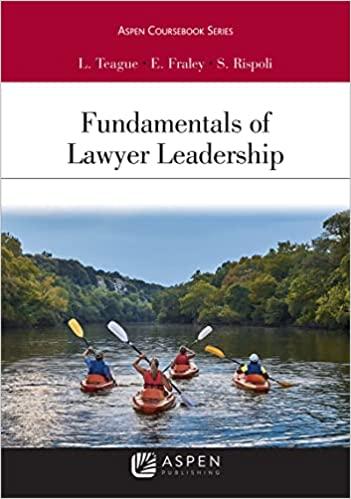Question
Summers and Dooley formed a partnership for the purpose of operating a trash collection business. The business was operated by the two men, and when
"Summers and Dooley formed a partnership for the purpose of operating a trash collection business. The business was operated by the two men, and when either was unable to work, the nonworking partner provided a replacement at his own expense. Summers approached Dooley and requested that they hire a third worker. Dooley refused. Notwithstanding Dooley's refusal, Summers, on his own initiative, hired a worker. Summers paid the employee out of his own pocket. Dooley, upon discovery that a third person had been hired, objected. He stated that the additional labor was not necessary and refused to allow partnership funds to be used to pay the new employee. After paying out more than $11,000 in wages without any reimbursement from either partnership funds or his partner, Summers brought suit in the Idaho state courts. The trial court held that Summers was not entitled to reimbursement for the wages he had paid the employee. On appeal, did the Supreme Court of Idaho uphold the trial court's decision? Explain."
Step by Step Solution
There are 3 Steps involved in it
Step: 1

Get Instant Access to Expert-Tailored Solutions
See step-by-step solutions with expert insights and AI powered tools for academic success
Step: 2

Step: 3

Ace Your Homework with AI
Get the answers you need in no time with our AI-driven, step-by-step assistance
Get Started


